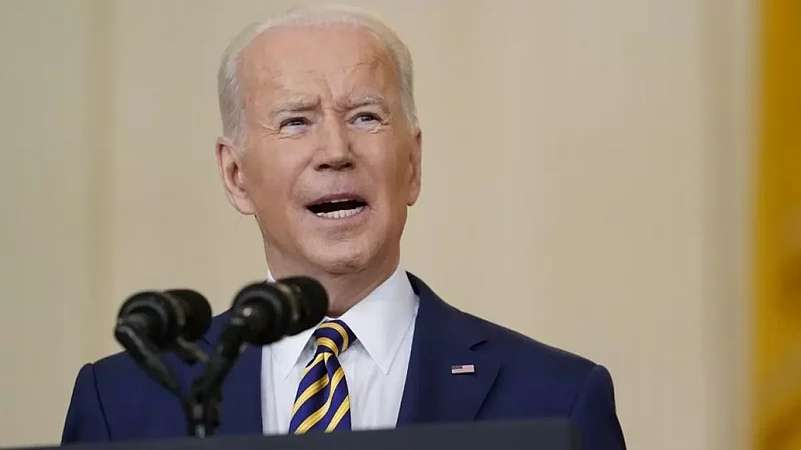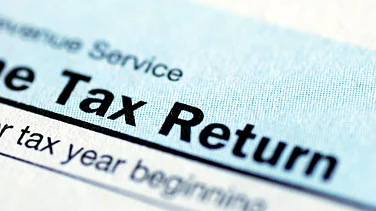Weeks after the failure of two banks, President Joe Biden called Thursday for independent regulatory agencies to impose tighter rules on the financial system, telling them that they can act under current law without additional steps taken by Congress. The recommended changes outlined by the White House try to put a clear blame on the Trump administration for weakening supervision of regional banks, issuing a fact sheet that said Biden's predecessor “weakened many important common-sense requirements and supervision.”
Rattling the financial markets and U.S. voters alike, the California-based Silicon Valley Bank and New York-based Signature Bank failed over the course of a weekend and required government intervention. Then another financial institution, First Republic Bank, received an emergency $30 billion infusion of funds from 11 large private banks.
Biden wants to revive and expand rules for mid-size banks that face less scrutiny than the industry's behemoths, with administration officials saying that US banks have stabilized since the collapse of Silicon Valley Bank on March 10 as it rolls out its recommended changes.
Once banks hold assets of more than $100 billion, the administration is asking them to hold more capital to absorb losses and face enhanced stress testing to ensure they could withstand a possible crisis. They would also need to provide the government with “living wills” to help them be unwound in case of failure.
In addition, Biden wants regulators to provide more aggressive supervision of banks and have them ensure that community banks are not responsible for replenishing the federal insurance fund for bank deposits. The public push is part of a larger effort by the Biden administration to safeguard the U.S. economy and ensure that individual bank failures can be contained without triggering a chain reaction across the wider financial system.
In a speech scheduled for Thursday afternoon, Treasury Secretary Janet Yellen plans to note that regulations have been weakened in recent years as the shocks of the 2008 financial crisis wore off, but that the recent failures required swift government intervention in order to preserve public confidence. “The failures of two regional banks this month demonstrate that our business is unfinished,” Yellen said in remarks prepared for delivery at the National Association for Business Economics conference in Washington. “Regulation imposes costs on firms, just like fire codes do for property owners. But the costs of proper regulation pale in comparison to the tragic costs of financial crises.”
What seemed unique in the two recent bank failures was how quickly bank runs started in a digital era, putting at risk accounts that exceeded the $250,000 limit on deposit insurance. The banks' holdings were also hurt by the Federal Reserve raising interest rates in order to tame inflation. Yellen is focused not just on banks, but also rules for money market funds, hedge funds and cryptocurrency.
“If there is any place where the vulnerabilities of the system to runs and fire sales have been clear-cut, it is money market funds,” she said in her prepared remarks. In February, money market funds contained net assets worth $5.3 trillion, according to the Securities and Exchange Commission.
She also was prepared to call for more oversight of digital assets and cryptocurrency, saying in her prepared remarks that “we must identify and fill gaps in existing authority for the oversight of other crypto-assets." Yellen pointed to volatility in the market, as well as the collapse of FTX, the large crypto exchange that failed in November, which left investors and customers with billions in losses.
Biden has also sought tougher penalties on the executives of failed banks, including clawing back compensation and making it easier to bar them from working in the industry. The root causes of the bank failures are still being explored and Yellen planned to caution in her remarks that government officials should not prejudge any inquiries that could inform changes in regulations.The Justice Department, the Fed, the SEC and several congressional committees have announced some form of investigation into the bank failures.
Lawmakers have held hearings with regulators from the Fed, FDIC and Treasury this week. Both political parties blame Fed officials for not quickly spotting the unique risk that the banks were exposed to by holding onto an unusually large amount of uninsured deposits. The banks simultaneously invested in long-term government bonds and mortgage-backed securities that tumbled in value as interest rates rose.
One thing that made Silicon Valley Bank's collapse unique was the “extraordinary scale and speed” of customers trying to make withdrawals, Michael Barr, the Federal Reserve's vice chair for supervision, told a congressional committee on Wednesday. Barr has said the Fed's review of the bank's collapse will consider whether stricter regulations are needed, including whether supervisors have the tools they need. The Fed will also consider whether tougher rules are needed on liquidity — the ability of the bank to access cash — and capital requirements, which govern the level of funds a bank needs to hold.
A day before Silicon Valley Bank's failure, customers tried to withdraw $42 billion, triggering a swift bank run that Barr said he had never seen before. “All of us were caught incredibly off-guard by the massive bank run that occurred when it did,” he said.































